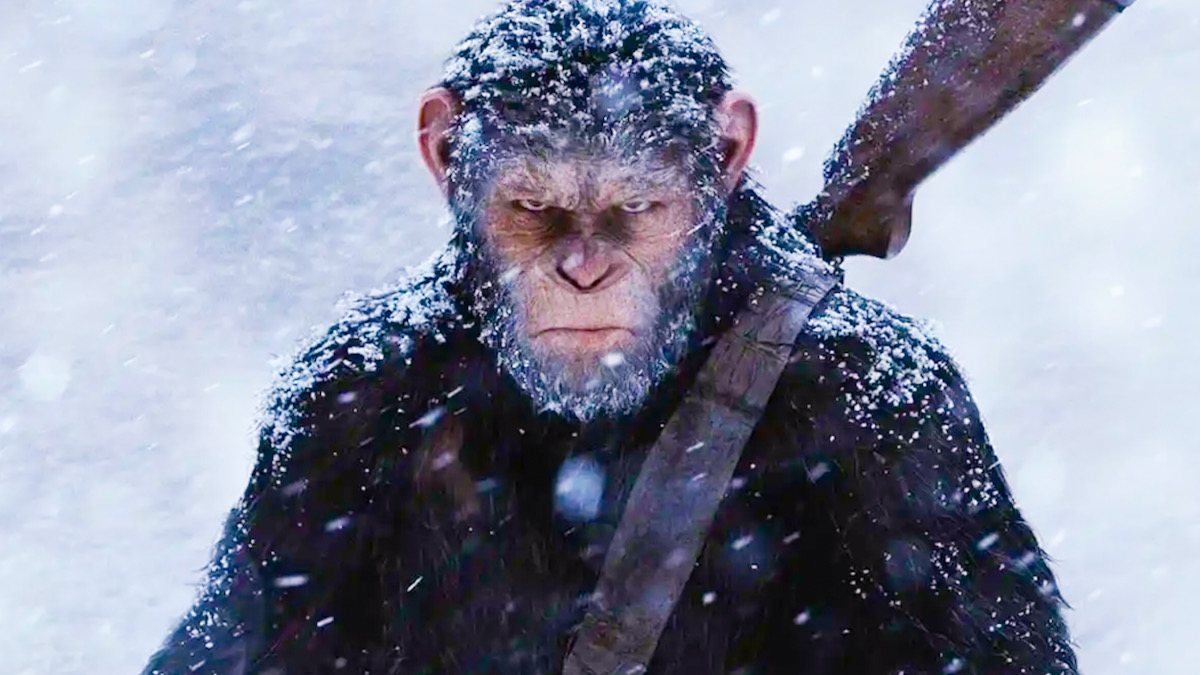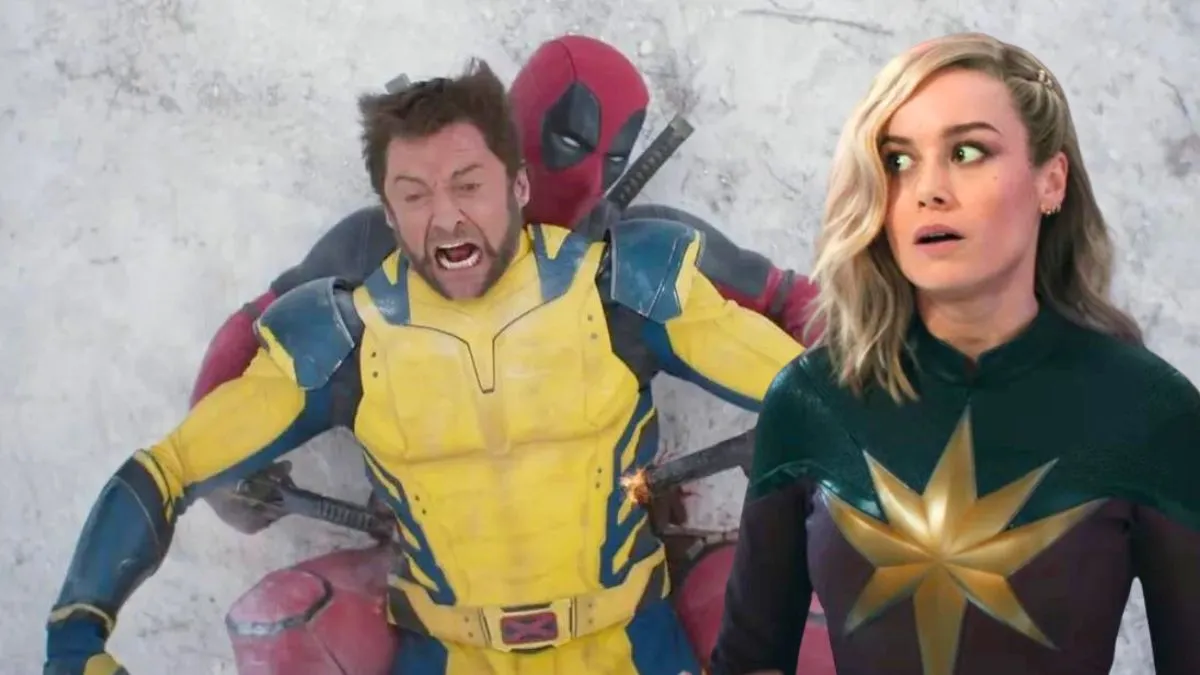
Joseph Kosinski’s Oblivion may be familiar science fiction, but that in no way prevents it from being top-notch science fiction. It engages the senses, creates a powerful sense of spectacle, features a brilliantly designed and fully realized futuristic setting, and is, most importantly, extremely thoughtful and entirely earnest in its creation of character and presentation of theme. None of it is groundbreaking – unless this is your first sci-fi film, you have seen this narrative and thematic territory covered before, sometimes better, sometimes worse – but if the filmmaking is passionate and the execution effective, I will never knock a film for being derivative. So it goes for Oblivion. Originality matters little when the experience is this rich and rewarding.
The film is Kosinski’s second, and proves that the clear potential he showed in Tron: Legacy, his debut, was no mere fluke. Visually, Legacy was imaginative and awe-inspiring, an absolute aesthetic marvel from top to bottom, and while the story came up short, the film had me feeling sure that its director had something great in him, waiting only for the right story and circumstances to come along. Oblivion is not quite ‘great,’ but it is a remarkable step forward for Kosinski, one that puts his truly extraordinary aptitude for cinematic craftsmanship to use in service of a compelling, multi-layered story with a poignant human element at its core.
Exposition, however, continues to be one of Kosinski’s weak spots, as Oblivion opens with one of the longest exposition dumps in recent memory. Related through narration by star Tom Cruise, we learn that Earth has been attacked, its moon destroyed and landscape ravaged, by an alien race called the ‘Scavengers.’ Humanity won the ensuing war, but at a cost – the use of nuclear arms made Earth inhospitable, and the survivors have moved off world to colonize Titan, a moon of Saturn. Cruise’s character, Jack Harper, is one of the last humans left, he and his partner Victoria (Andrea Riseborough) managing the sophisticated technology that gathers Earth’s water for energy.
It is a dense, detailed set-up to relate entirely through narration, and though the opening does not fall flat – this is an interesting premise, and is set to absolutely fantastic visuals – it feels as if Kosinski lacks faith in his own skill. For in the scenes that follow, all the pertinent information from the introduction will be shown to us, rather than told, as Harper executes his normal routine. Once the exposition is over, the film becomes properly fascinating, for we are immersed in a spectacularly designed world populated by characters worthy of emotional investment. Oblivion is a terrific exercise in world building, and I hope that next time, Kosinski trusts both himself and the audience enough to forego formal exposition.
What Oblivion achieves in transporting the audience to another time and place really cannot be understated. This is the most aesthetically accomplished film of 2013 so far, one where every single visual is stunningly rich and deeply thoughtful. The best science-fiction landscapes are the ones where every detail – each device, costume, vehicle, piece of furniture, etc. – seems rooted in a larger cultural and technological whole, and Oblivion absolutely lives up to this ideal. The production design and visual effects are so meticulous and visually enticing – every last penny of the $120 million budget is put to good and obvious use – that it is easy to take for granted, but they are key to what makes Oblivion so successful in building its palpable, believable world.

Moreover, the film simply looks and sounds breathtaking. The music, by Joseph Trapanese and electronic band M83, is cut from the same cloth as Daft Punk’s work on Tron: Legacy (Trapanese was an assistant composer on that film), and is even more effective in crafting tension, inspiring awe, and underlining emotion. It may not be quite as bombastic and attention grabbing as the Tron soundtrack, but that can be seen as a good thing – this functions better as a film score to my ears, and is the best set of compositions so far this year. Similarly, the cinematography is absolutely marvelous, a much better showcase for Director of Photography Claudio Miranda’s talents than his overrated, Oscar-winning work on Life of Pi. The camerawork creates an immersive sense of depth and scale and is more than adept at producing true wonder, an achievement that should not be taken lightly. It is even more pleasing in IMAX, where the matte is opened to somewhere in the vicinity of 1.85:1, and Kosinski proves, as he did on Tron: Legacy, that he has an intuitive understanding of large-format photography. I very much hope he uses real IMAX cameras one day, for few are better at taking advantage of the space an IMAX screen affords.
What really matters, though, is that all this visual work goes towards something narratively meaningful. Oblivion may take cues from a dozen different sci-fi stories, but it never feels ‘cobbled together.’ The screenplay – officially credited to Kosinski, Karl Gajdusek, William Monahan, and Michael Arndt, the latter two being some of the bigger hitters working in Hollywood today – is very strong, constantly rooting its big ideas and expansive story in the arcs and emotions of its main characters. The opening introduction suggests a vast and impersonal plot, and while the film’s endgame is extremely substantial, this is mostly a character piece for Cruise and his co-stars as the central figures grapple with issues of identity, morality, love, and memory. It all feels earnest and hits home effectively, and while I would not call the film ‘provocative,’ it has moments that are intellectually and emotionally challenging, and is consistently intelligent throughout. The pace, too, is razor-sharp, moving at exactly the right speed to immerse us in this world and familiarize us with the characters, and allowing the major secrets and twists to come out organically as the film moves along.
Tom Cruise displays his usual strong, confident screen presence, and as I watched, I realized just how much I love and respect the work he consistently does on film. The character of Jack Harper is not a major departure for him – a tad more vulnerable, perhaps, and less adept in action heroics – but whenever Cruise walks on screen, I believe him 100 percent, no matter the part. Oblivion is no exception. Cruise is a ‘movie star’ in the truest sense, and still one of the best working today.
Olga Kurylenko is an actress who seems to improve with every role she is given, and her part here is an interesting one that I do not feel disposed towards spoiling. The same goes to Morgan Freeman, who employs his wonderful voice beautifully in his relatively limited screen-time. But aside from Cruise, the best performance comes from Andrea Riseborough, who has do a lot of dramatic and expositional heavy lifting as Harper’s romantic and professional partner, Victoria, and pulls it all off with aplomb.
Oblivion is one of the very best films to arrive so far in a highly disappointing year for movies, and I suspect it will give some of this summer’s major offerings a run for their money. If the next few months were not entirely devoted to franchise releases, I would think Oblivion would work just as well as a major summer tent-pole. Universal has something special on their hands, if not something revelatory, and I can imagine audiences responding enthusiastically. This is smart, exciting science fiction, the likes of which American cinema only achieves occasionally, and definitively marks Joseph Kosinski as a major directorial talent.
[springboard type=”video” id=”627013″ player=”wgtc007″ width=”600″ height=”350″ ]





